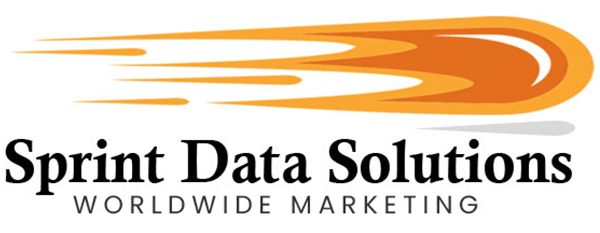The Best Way To Do Business With Other Businesses Is To Know Them
The Business-to-Business (B2B) sector is both highly lucrative and fiercely competitive. Unlike the general consumer market, where emotional appeal, lifestyle branding, and impulse buying often influence purchasing decisions, the B2B landscape is driven almost entirely by logic, necessity, and return on investment. Here, success hinges on delivering measurable outcomes and building trust among a highly discerning audience of professionals and corporate buyers.
B2B buyers represent organizations, not individuals, and as such, their expectations are rooted in performance, efficiency, and strategic alignment. Products and services marketed in this space must demonstrate tangible value—whether by increasing productivity, reducing costs, enhancing compliance, or streamlining operations. High standards for quality, scalability, and reliability are non-negotiable, and suppliers are often evaluated not only on what they offer, but how consistently they deliver.
Because of this, B2B transactions typically involve longer sales cycles, greater scrutiny, and multi-tiered approval processes. Purchases are rarely spontaneous; they are carefully researched, budgeted, and authorized by specific decision-makers within the organization—often across procurement, operations, finance, and executive leadership. For vendors, this means that a clear understanding of who controls the buying process is essential to making inroads with any potential client.
At the same time, the rewards in B2B are substantial. Contract values are often higher, customer relationships are more stable, and long-term partnerships can deliver recurring revenue for years. However, success in B2B marketing requires a different approach—one that emphasizes expertise, credibility, and trust, supported by targeted, data-driven outreach that reaches the right people at the right time.

Finding The Right Staff Member
One of the most persistent challenges in the B2B sector is identifying the right person to engage within an organization. Unlike in consumer marketing—where the end user is often the buyer—B2B purchasing decisions typically require authorization from specific individuals, and those individuals vary based on the company’s size, industry, and internal structure. Few employees possess the authority to approve a product or service, and the chain of decision-making can differ greatly between departments.
For example, purchasing decisions related to financial services are typically handled by someone in the finance or accounting department, such as a controller or procurement officer. In contrast, office furniture, IT infrastructure, or employee training services might fall under the jurisdiction of operations managers, HR directors, or facilities supervisors. This complexity means that marketers must do more than just target companies—they must pinpoint the actual decision-makers within those organizations.
What makes this even more difficult is the lack of internal transparency in most companies. Job titles can be ambiguous, gatekeepers may shield executives from cold outreach, and companies rarely publish organizational charts. Without reliable insight, marketers risk wasting time by pitching to someone without purchasing power—or worse, alienating a potential client by contacting the wrong department entirely.
In such a competitive landscape, precision is critical. The best-case scenario involves time-consuming research to track down and qualify the correct contact. In the worst case, missteps can result in permanent blocks or negative brand impressions due to inappropriate targeting. To avoid this, businesses need more than generic contact lists—they need data that is both comprehensive and intelligently segmented.
Success in B2B marketing hinges on a combination of strategy and execution. While some tactics may overlap with consumer marketing—such as personalization and value-based messaging—B2B requires an added layer of nuance and structure. If you want to gain traction in this space, you’ll need to implement core strategies such as:
Research
This is the cornerstone of all successful B2B marketing strategies. While the old adage says, “knowledge is power,” in the world of B2B, knowledge translates directly into revenue and long-term business relationships. The most effective campaigns begin with a strong foundation of insight. This includes understanding your industry landscape, competitive positioning, and—most importantly—the specific pain points and priorities of your target businesses. The more detailed your research, the more tailored and persuasive your outreach becomes.
Testing & Optimization
After developing your campaign strategy, the next critical step is putting it to the test. What works in theory may play out differently in a real-world business environment. By conducting A/B testing, pilot campaigns, or segmented rollouts, you gather actionable feedback that helps refine your messaging, channels, and offers. Optimization is where strong B2B marketers separate themselves—by continually measuring response rates, engagement metrics, and conversion data, you adapt and evolve your approach to drive consistently stronger results over time.
Specialization
B2B markets thrive on precision. Unlike general consumer audiences, businesses are not looking for broad-based appeal—they seek specific, purpose-built solutions that align with operational goals or industry compliance requirements. Specialization allows you to position your product or service as an expert solution within a clearly defined niche. Ironically, by narrowing your focus, you increase your value to businesses within that space, opening the door to more loyal clients, higher-margin contracts, and long-term partnerships based on expertise and trust.

Referrals
Businesses, much like individuals, are heavily influenced by peer recommendations and industry reputation. In the B2B world, where risk mitigation and reliability are top priorities, a referral from a trusted partner or satisfied client often carries far more weight than any advertisement. A strong reputation isn’t just beneficial—it’s a strategic asset that can unlock new opportunities and shorten sales cycles.
Establishing and maintaining this level of trust requires more than just delivering on a product or service. It demands consistent high-quality service, transparent communication, prompt follow-ups, and a customer-centric approach. When a business goes above and beyond to ensure client satisfaction, it builds advocates who are willing to vouch for them in their professional networks. These referrals often lead to higher-value clients, increased loyalty, and long-term growth.
Today’s Marketing Techniques
The landscape of B2B marketing has evolved dramatically over the past two decades, and even more rapidly in recent years due to the profound impact of the global pandemic. The “new normal” has redefined how companies connect, communicate, and collaborate. Remote work, digital transformation, supply chain disruptions, and evolving customer expectations have permanently reshaped the B2B environment. As a result, success in today’s market depends on understanding and adapting to a new set of conditions and behaviors that govern business interactions.
Modern B2B marketing must now account for more digitally driven decision-making processes, where buyers conduct independent research online before ever engaging a sales rep. Virtual meetings have replaced in-person consultations, and the importance of omnichannel presence, personalized content, and account-based marketing has surged. Businesses also prioritize flexibility, resilience, and sustainability in their partnerships—values that must be reflected in your marketing messaging and positioning.
In this evolving context, B2B marketers must remain agile and data-driven. Some of the most critical trends to consider moving forward include:
Millennials Are The New Working Age Group
The generational composition of the workforce is rapidly shifting. The baby boomer generation, long a dominant force in leadership roles, is now entering full retirement. Generation X, born between 1965 and 1980, currently holds many senior management and executive positions across industries. However, by 2025, millennials—those born between 1981 and 1996—are projected to make up the largest portion of the global workforce, increasingly influencing both purchasing decisions and corporate culture.
For marketers, this generational shift underscores the importance of age-appropriate messaging and tone. Effective B2B marketing must align with the cultural reference points, communication preferences, and values of its target audience. Using nostalgic references from the 1950s or 60s might not resonate with Generation X executives, whose formative years were shaped more by the 80s and 90s. Similarly, applying 70s or early 80s themes in marketing materials aimed at millennial professionals—many of whom grew up during the internet age of the 2000s—risks creating a disconnect rather than engagement.
Millennials respond better to content that reflects modern technology, digital fluency, social awareness, and collaborative values. They favor brands that are authentic, data-driven, socially responsible, and transparent. Messages rooted in innovation, work-life balance, and career impact tend to resonate more than traditional corporate clichés or outdated stereotypes.
As millennials take the reins in decision-making roles, marketing strategies must evolve accordingly—leveraging relevant visuals, language, platforms, and content formats that reflect the mindset and expectations of this generation. Doing so is key to building trust and ensuring your message lands with the right impact in today’s multigenerational business environment.

Longer Buying Cycles Are the Norm
In the wake of global economic uncertainty and lingering effects of the pandemic, many companies have adopted more cautious and cost-conscious purchasing behaviors. Tightened budgets, greater scrutiny over expenditures, and risk mitigation strategies have significantly extended B2B buying cycles. What was once a quarterly or even monthly procurement may now occur only once or twice a year—if at all.
B2B marketers must adjust to this slower pace by shifting their messaging to emphasize long-term value, durability, and return on investment. Solutions that can demonstrate measurable outcomes over an extended period will outperform those viewed as short-term fixes. Companies are prioritizing purchases that optimize operational efficiency, reduce recurring costs, or consolidate multiple tools or services into a single, longer-lasting solution.
Adapting to this trend may involve offering scalable pricing models, longer service life guarantees, or bundled packages that stretch the perceived value of a single purchase. Additionally, nurturing leads over longer timeframes through email, content marketing, and retargeting will be essential to staying top-of-mind until decision-making cycles conclude.
Talk to the Right People
In B2B marketing, precision targeting is everything. One of the biggest barriers to conversion is failing to connect with the actual decision-maker. Whether you’re selling software, logistics services, office equipment, or financial solutions, your messaging must land in front of the person who holds budget authority or purchasing influence within that department.
This requires more than just acquiring a company contact—it demands understanding the organizational structure, job roles, and approval processes within your target industry. For example, IT-related purchases are typically vetted by a CTO or IT director, while HR technology may fall under the domain of a VP of Human Resources. Approaching the wrong contact wastes time and can even harm future opportunities if your message is seen as irrelevant or misdirected.
Utilizing data-enriched B2B contact lists that provide department-level segmentation and verified decision-maker roles can dramatically improve outreach success. Whether you’re building relationships through multi-touchpoint campaigns or relying on a marketing partner, ensure every message is purposefully directed to the stakeholder with the power to act.
We Can Help
Sprint Data Solutions Worldwide Marketing specializes in helping companies connect with businesses that have a genuine need for their products or services. Founded in Las Vegas, Nevada, the company began its journey in the traditional direct mail marketing sector, where it quickly established a reputation for delivering high-quality, results-driven campaigns. This early foundation in direct mail fostered the creation of a broad and meticulously maintained database of commercial and consumer contacts, offering deep insights across a wide variety of industries.
Thanks to consistent performance and a commitment to accuracy, Sprint Data Solutions experienced steady and strategic growth. What began as a Nevada-based operation quickly expanded across the continental United States, later adding Alaska and Hawaii to offer full national coverage. As demand grew, services were extended throughout North America, including Canada and Mexico, and eventually into key international markets in the European Union, offering clients the opportunity to engage new customers on a global scale.
Over the years, Sprint Data Solutions has developed one of the most robust and dynamic contact databases in the industry. But more importantly, the company ensures that this data remains up-to-date and relevant, continually verified through industry-standard processes. The shift toward digital communication has only expanded the company’s capabilities—today, businesses can access multichannel outreach options through the platform. These include verified postal addresses for direct mail, email addresses for digital campaigns, business and personal telephone numbers for voice outreach, and cellular phone numbers for SMS or text-based marketing.
By combining geographic coverage, data accuracy, and multichannel accessibility, Sprint Data Solutions Worldwide Marketing empowers clients to launch highly targeted, high-conversion marketing campaigns—whether they’re looking to penetrate local markets, scale nationally, or expand internationally.
Find The Right Client For You
One of the greatest challenges in B2B marketing is ensuring that outreach efforts reach the right decision-maker—the person who has both the authority and the context to evaluate and approve a purchase. Too often, valuable time and resources are lost navigating complex corporate hierarchies, only to discover that marketing materials have landed with someone who cannot take action. Sprint Data Solutions Worldwide Marketing solves this problem by offering extensive, well-curated business contact databases that include not just company details, but the names, titles, and roles of key decision-makers across various departments and industries.
Whether you’re targeting a procurement officer in manufacturing or a director of marketing in a retail chain, Sprint’s business listings are designed to connect you directly with the professionals responsible for purchasing decisions. Every entry can include a variety of contact options—email addresses, landline numbers, mobile numbers, and physical mailing addresses—allowing you to reach your audience via the channel that best suits your campaign strategy.
What truly sets Sprint Data Solutions apart is its ability to offer deep industry-specific segmentation. Businesses are not approached as generic targets; instead, clients are empowered to focus on precisely the sectors and roles that align with their offerings. For example, if your B2B solution is geared toward retail operations in the food and beverage space, you’ll be provided with contacts specifically relevant to that sector. Alternatively, if your focus is industrial—such as mining, petroleum, or logistics—you’ll receive data aligned with those markets, ensuring optimal relevance and engagement.
In addition to contact details, each listing is categorized with valuable business intelligence, such as company size, revenue brackets, number of employees, and geographic location. This allows for even more refined targeting and ensures your outreach is strategic rather than broad and unfocused.
If you’re ready to launch or scale your B2B marketing efforts, Sprint Data Solutions Worldwide Marketing is ready to help you reach the right businesses with reliable, targeted data that drives real results. Contact us today and take the next step toward achieving your B2B goals.






